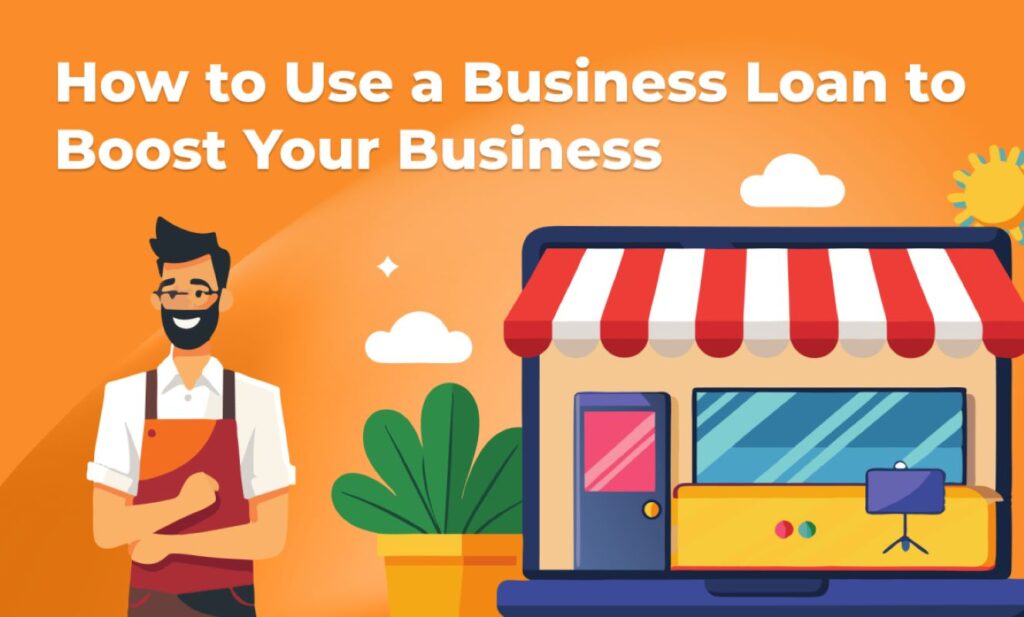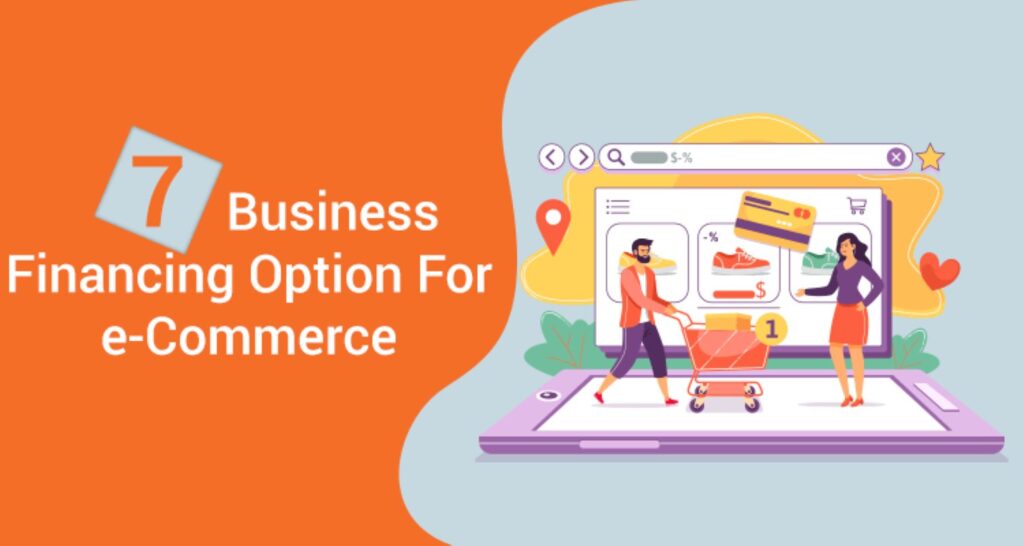E-commerce business loans may be the key to breaking the previous profitability limits of your online business. There’s more to scaling business income than initiating marketing initiatives, maintaining an inventory, warehousing, and customer fulfillment. Despite maxing out all your savings to invest in the business, there are possibilities of still coming short financially.
However, there are bespoke funding sources for e-commerce sellers like yourself that could turn out to be the needed stimulus for business growth.
What Is an E-Commerce Business Loan?
E-commerce business owners have many loan options at their disposal, like traditional bank loans and SBAs. However, e-commerce business loans are tailored specifically for online retail businesses. Some e-commerce business loans can help you start, grow, and scale, while some are explicitly provided for a single growth phase.

Before 2020, e-commerce was slowly catching up as an investment-worthy business model. However, the COVID lockdown caused the e-commerce industry to suddenly boom in operations. For example, the UK saw a phenomenal rise of 74% in e-commerce sales in January 2021.
So, this is naturally a good season to establish a standard operational setup to boost the business’s market coverage and customer retention. However, building business momentum and scaling progressively are all dependent on the availability of funding.
An e-commerce business like Amazon sits on a huge trove of capital so that it can spread its tentacles into previously untapped prospects. Amazon started as an online book retailer but has expanded into other industries, like the food industry.
ALSO READ: Business Auto Loans Without Personal Guarantee
How Can You Use an E-commerce Business Loan?
There are a handful of ways to utilize e-commerce financing when you eventually secure one. Interestingly, you are likely to find an affordable and flexible loan option tailored specifically for each of the following e-commerce activities:

- Payroll Augmentation
- Scaling your E-commerce Business
- Launch of a New Startup
- Paying Business Expenses, Like Warehousing, Marketing etc.
- Organizing Operational Capital
- Repurposing and Refinancing Debts
- Securing or Renewing Business Operation Licenses and Permits
- Paying Taxes
- Buying Real Estate
Top 7 Platforms for Accessing E-commerce Business Loans
Now, it is not enough to know that there are all forms of e-commerce business loans to start or scale your business. So, we are here to list seven of the most reliable funding sources for e-commerce businesses. However, you’ll need to assess the loan options provided by each to determine the best fit for your online retail business.

1. Payoneer
If you sell your products on Tophatter, Walmart, or Amazon, Payoneer has an e-commerce business loan for you. All you need to qualify is a good sales history; no collateral or equity is required. The Payoneer funding option is a good source of capital to scale your online retail business.
2. PayPal Working Capital
Like Shopify Capital, PayPal Working Capital requires a premium PayPal or Business PayPal account for funding eligibility. The e-commerce business is also expected to net monthly sales of at least $20,000. Repayments are made through a single proportional fixed charge, dependent on your PayPal sale. However, PayPal Working Capital requires businesses to offset at least 5% or 10% of their outstanding in 90-day cycles.
3. Shopify Capital
Shopify Capital operates a bit like Wayflyer, but each of these lenders has a peculiar flavor of loan options. With Shopify Capital, there are no weekly or monthly repayment installments. Instead, they cut you some slack by taking all their charges from your daily sales. This lender’s offers are available to merchants who are Shopify users and run their business out of the US, Canada, or the UK.
Once all these requirements are fulfilled, merchants automatically receive notifications of e-commerce loan offers on their Shopify Capital dashboard without having to apply.
4. Wayflyer
Wayflyer provides a pretty flexible loan to e-commerce businesses. Unlike some other lenders, they don’t charge interest rates. Instead, all their charges are compounded into a single fee, which you could pay as a fragment of your e-commerce sales. To get a Wayflyer e-commerce loan, the following are necessary:
- Be a registered company in a country under their coverage
- Be in the e-commerce industry
- Provide a minimum of 6/months sales record
- Gross a minimum average monthly sales of $20,000 per month
5. Payability
Payability is never interested in running a hard credit check on your business finances. However, before awarding a loan offer, this lender goes through your ledgers to ascertain the health and performance outlook. Payability offers funding of up to $250,000 in exchange for a weekly fee of 0.5-1% of the loan amount. Payability offers instant payout access at a fee for merchants selling on marketplaces like Amazon.
ALSO READ: A Comprehensive Guide to Using FHA Loans for Investment Property
6. 8fig
8fig is a long-haul lender, giving out loans to promising e-commerce startups and help such businesses scale along the way. The core of this lender’s funding is to support entire supply chains. They achieve this by providing e-commerce merchants with free planning tools. These tools help determine the amount of cash injection the business requires per time.
You don’t need an equity or personal guarantee for an 8fig loan. However, they charge a fixed rate of between 6 and 10% of the offer amount.
7. Clearco
If you are about to start your e-commerce business and don’t have any equity with which to apply for traditional loans, then Clearco is the right entity to approach. This lender provides up to $10 million in funding to e-commerce startups. Clearco makes money from the loan offer through a revenue-sharing agreement, exclusive of a 6 to 10% processing fee.
If you are ready to turn that business idea into a startup or to spread the tentacles of an existing one, an e-commerce business loan may be the way out.

